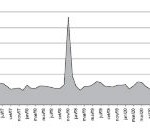Jan 2023

Central Pharmacy of A. López-Gómez, 1900-1920, Spain. Source: San Pedro, Abraham (coord.) Las farmacias. Imágenes de nuestra memoria. Madrid: Turner/Grupo Cofares, 2008.
Until well into the 20th century, the working conditions of pharmacy assistants – often overworked internal workers – were extremely hard. Working days with practically no rest, miserable wages and housing, and a paternal-filial servility between employer and worker which ensured the status quo between classes. The introduction of the eight-hour workday in Spanish pharmacy offices in 1919 was the beginning of a new labour order that pharmacists and pharmacy assistants did not accept in the same way.
The article The implementation of the eight-hour working day in Spanish pharmacies, 1904-1936 Dr. Raúl Rodríguez Nozal, Professor of History of Science at the University of Alcalá (Spain), has studied the introduction of the eight-hour working day in Spanish pharmacies, which took place in 1919, as well as the legislative background that led to it: the Sunday Rest Act of 1904 and the Regulatory law for shop assistants (1918).
These health establishments were exempted from the Sunday Rest Act and, although they were included in the Regulatory law for shop assistants, they were exempted from strict compliance with it as long as they worked sixty hours a week. The Royal Decree that established the eight-hour working day in Spain (48 hours per week) was published a few months after the Regulatory law for shop assistants, with hardly any time for its implementation.
This circumstance was exploited by pharmacists and auxiliary pharmacists, who always interpreted these legal provisions to their advantage. As with the law for shop assistants, pharmacies were also exempted from the eight-hour working day, at least partially; internal pharmacy assistants had to work the ten hours established by the commercial working day, instead of the eight hours established for external workers.








